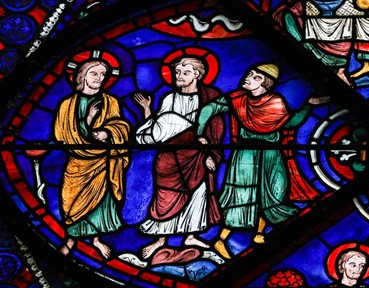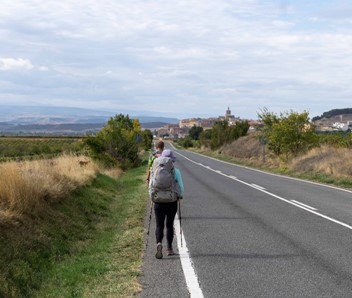Of course, I choose these words because of Anzac Day, but I also choose them because stories, recollections and histories are remembered in our:
- Scripture readings
- Eucharistic prayers
- Personal lives
- Family memories
- Community gatherings
- National celebrations, and
- Global events
The Governor-General of Australia, General David Hurley, gave a national address on Anzac Day, in which he remembered and honoured the service and sacrifice of those who have served our nation, and he spoke of how proud we are of our Anzac forebears. He finished his address by saying the words, “We are proud of our Anzac forebears, let us make them proud of us.”
As part of his address he said:
On Anzac Day we remember and honour the service and sacrifice of those who have served our nation. We do this for a number of reasons:
- to acknowledge those who have died in service to our nation
- to reflect on how that service and sacrifice has contributed to what and who we are as a nation today - that is, to understand its impact - and
- to understand what our response should be to that legacy.
He went on to say:
We now talk of the ANZAC legacy as having four characteristics that define Australia:
- mateship
- endurance
- courage, and
- sacrifice
In essence, these characteristics say that we are a people who, in adverse situations, are strong, look out for each other, and are prepared to put others before self.
I believe it is important to remember and honour the sacrifice of our forebears, and to draw inspiration from their legacy as we confront our own generational test.
These sentiments were still with me as I listened to our Sunday Readings. In the reading from the Acts of the Apostles (2:1-4, 22-33), Peter, when speaking on the day of Pentecost, recalls the words of their patriarch and prophet David:
I saw the Lord before me always,
for with him at my right hand nothing can shake me.
So my heart was glad
and my tongue cried out with joy:
my body, too, will rest in the hope
that you will not abandon my soul to Hades
nor allow your holy one to experience corruption.
You have made known the way of life to me,
you will fill me with gladness through your presence.
 This was followed by the reading of the Gospel from Luke (24:13 – 35), in which the account of the journey on the road to Emmaus is re-told. We are all familiar with what happened on that road, and how the two disciples were walking away from Jerusalem, two days after the death of Jesus, probably despondent while talking and trying to understand what had just happened. They are joined by Jesus, whom they do not recognise, and who breaks open the Hebrew Scriptures with them, and then finally in their presence, while at table, takes bread and says the blessing; breaks it and hands it to them. It was only then that their eyes were opened and they recognised him.
This was followed by the reading of the Gospel from Luke (24:13 – 35), in which the account of the journey on the road to Emmaus is re-told. We are all familiar with what happened on that road, and how the two disciples were walking away from Jerusalem, two days after the death of Jesus, probably despondent while talking and trying to understand what had just happened. They are joined by Jesus, whom they do not recognise, and who breaks open the Hebrew Scriptures with them, and then finally in their presence, while at table, takes bread and says the blessing; breaks it and hands it to them. It was only then that their eyes were opened and they recognised him.
Here we have the template for our Mass, where the scriptures and the bread are broken open. We gather, listen, see and remember the mateship, endurance, courage, and sacrifice. Lest we forget.
On this weekend, I also remember my mum who died on 27 April 2002. When we gather as a family, we tell her story and remember her legacy. We gather, listen, see and remember the mateship, endurance, courage, and sacrifice. Lest we forget.
Over these days of COVID-19 world news and isolation, we are reminded of the mateship, endurance, courage, and sacrifice of those who are serving our community or who have died. Lest we forget.
And through the week, I have noted Richard Rohr’s Daily Meditations (April 20 – 24) on St Teresa of Avila and St John of the Cross. I will share some of his reflections with you about them, as we recall their mateship, endurance, courage, and sacrifice. Lest we forget.
Author Tessa Bielecki writes about Teresa of Ávila as an extraordinary example of action and contemplation.
Teresa . . . is not only one of the greatest contemplatives in the Western spiritual tradition, but also one of its greatest activists. Tremendously involved with people and projects, constantly on the go, Teresa still found time to make prayer a priority.
She founded new convents at the rate of one and sometimes two per year. . . She was an ingenious administrator with a flair for organisation, an astute diplomat, and wise in the world of finance, litigation, and contract negotiation. Her financial worries, business deals, and personnel problems certainly challenged her life of prayer, but never spoiled it. . . .
Contemplation and mysticism . . . both mean loving experiential awareness of God: not ideas in the head or on the lips, but personal living experience. In the Teresian tradition, this experience takes a special form which spiritual writer William McNamara calls “spousal prayer” . . . . [It is sometimes called bridal mysticism and is found in the Bible in the Song of Songs.]
Teresa uses the various stages in human courtship to describe the stages of prayer. First we meet [with God], exchange gifts and get acquainted. Eventually we are betrothed, and then finally we marry. True love deepens and grows gradually, over a lifetime. . . .
But the matter does not end here. Another consequence of prayer is far more demanding: generous, self-spending, and exhausting service. . . . The proper relationship between these two consequences is clear in the teachings of Jesus. First, he says, “Love the Lord your God with all your mind and heart and soul and body.” Espousal. Second, “Love your neighbour as yourself.” Service. [see Mark 12:30–31] . . .
As our prayer grows deeper and more authentic, we want to spend ourselves serving God and the world created out of divine love.
To be clear, this type of “spousal” or unitive prayer is not just for single or celibate people; it is available to all of us who are willing to risk surrendering our hearts and lives fully to God.
Both St Teresa and John of the Cross were convinced that the Carmelite Order was in need of reform. Their shared dream was of a life of voluntary simplicity, solitude, and silence. A contemplative life based on the Gospel teachings of poverty of spirit and charity of heart. A life of stripping away rather than accumulating. Of relinquishing power and seeking nothing. Of nothing but loving friendship with the divine and loving service to God’s creation.
I am convinced this is what it means to be a disciple of Jesus, to be a follower of The Way. I think this is what many of us are seeking through the Plenary Council and the Diocesan Synod processes.
The following excerpt is from the Prologue to the Ascent of Mount Carmel by St. John of the Cross:
A deeper enlightenment and wider experience than mine is necessary to explain the dark night through which a soul journeys toward that divine light of perfect union with God that is achieved, insofar as possible in this life, through love. The darknesses and trials, spiritual and temporal, that fortunate souls ordinarily undergo on their way to the high state of perfection are so numerous and profound that human science cannot understand them adequately. Nor does experience of them equip one to explain them. Only those who suffer them will know what this experience is like, but they won’t be able to describe it.
 So, during this time of isolation, I believe it is possible for us to be experiencing a renewal of spirit, of what it means to be a disciple of Jesus, of what it means to be a Christ-centred Church. Like the disciples travelling on the road to Emmaus, we are but pilgrims on a journey, trying to make sense of what it means to be a Christian, and in our context, a Catholic. As we journey, we are called to encounter Christ in:
So, during this time of isolation, I believe it is possible for us to be experiencing a renewal of spirit, of what it means to be a disciple of Jesus, of what it means to be a Christ-centred Church. Like the disciples travelling on the road to Emmaus, we are but pilgrims on a journey, trying to make sense of what it means to be a Christian, and in our context, a Catholic. As we journey, we are called to encounter Christ in:
- mateship
- endurance
- courage, and
- sacrifice
During the live-streamed Mass from the Sacred Heart Cathedral on Sunday, the choir sang In the Breaking of the Bread by Michael Ward. The music and the words are just so powerful, and I share this YouTube clip with you, or you may wish to go onto our website and view the Mass for the Third Sunday of Easter:
https://www.youtube.com/watch?v=59vUI9G_XkI
My hope is that many people will come to experience that in our Mass we share a powerful story, and it is possible for our eyes to be opened, and to recognise that Jesus is alive in the breaking of the bread. This is what we remember – Lest we forget.

